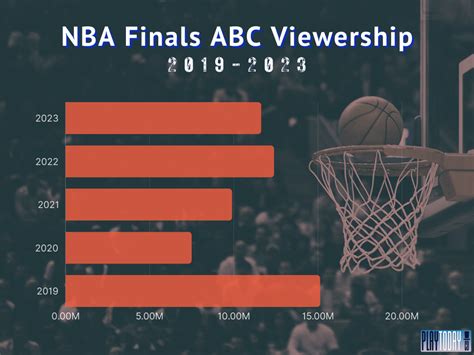
Imane Khelif, an Algerian boxer, has been barred from participating in upcoming World Boxing events, including the Paris 2024 Olympics, due to eligibility concerns flagged by the World Boxing organization. The decision, confirmed recently, stems from Khelif’s failure to meet eligibility criteria, though the specific reasons remain officially undisclosed.
Algerian boxer Imane Khelif’s Olympic dreams have been dashed after she was deemed ineligible to compete in World Boxing-sanctioned events, effectively ending her hopes for the Paris 2024 Olympic Games. The controversial decision, which has stirred considerable debate within the boxing community, centers around Khelif’s inability to meet the eligibility criteria set forth by World Boxing, the governing body overseeing the sport at the Olympic level. While the exact nature of the eligibility issues has not been publicly disclosed, the ruling has significant implications for Khelif’s career and Algeria’s representation in international boxing competitions.
World Boxing, formerly known as AIBA (Association Internationale de Boxe Amateur), communicated their decision, leaving Khelif and the Algerian boxing federation scrambling for answers. The organization cited regulations related to fair play and equal opportunity as the basis for the ineligibility ruling, emphasizing their commitment to upholding the integrity of the sport. However, the lack of transparency regarding the specifics of Khelif’s case has fueled speculation and criticism, with many questioning the fairness and consistency of World Boxing’s eligibility assessment process.
Khelif, a decorated athlete with a history of strong performances in international competitions, expressed her disappointment and frustration with the decision. In a statement, she maintained her innocence and asserted that she has always adhered to the rules and regulations of the sport. She also criticized World Boxing’s handling of the matter, alleging a lack of due process and transparency in their investigation. The Algerian boxing federation has voiced its support for Khelif, vowing to appeal the decision and fight for her right to compete. However, with the Paris Olympics rapidly approaching, the window of opportunity for Khelif to overturn the ruling is quickly closing.
The controversy surrounding Khelif’s ineligibility highlights broader issues within the sport of boxing, particularly concerning governance, transparency, and fairness. World Boxing has faced scrutiny in recent years due to allegations of corruption, mismanagement, and biased officiating. These issues led to the organization’s suspension by the International Olympic Committee (IOC) and the subsequent formation of World Boxing as a new governing body aimed at restoring trust and credibility to the sport. However, Khelif’s case raises questions about whether World Boxing is truly committed to these principles and whether it is capable of ensuring a level playing field for all athletes.
The impact of Khelif’s exclusion extends beyond her personal aspirations, affecting Algeria’s overall performance in the upcoming Olympics. As one of the country’s top boxing talents, Khelif was expected to be a strong contender for a medal. Her absence will undoubtedly weaken Algeria’s chances of success in the sport and may also demoralize other athletes. The Algerian government and sports authorities have expressed their concern over the situation and have pledged to provide Khelif with all necessary support to challenge the ruling. However, the odds of a successful appeal remain uncertain, given World Boxing’s firm stance on the matter.
The situation also underscores the challenges faced by athletes from developing countries in navigating the complex and often opaque world of international sports governance. Limited resources, lack of access to legal expertise, and political considerations can all put these athletes at a disadvantage when disputes arise. Khelif’s case serves as a reminder of the need for greater equity and fairness in the application of eligibility rules and the importance of providing athletes with a fair opportunity to compete, regardless of their nationality or background.
As the controversy unfolds, it is crucial to examine the broader context of World Boxing’s efforts to reform the sport and address its past failings. The organization has implemented a series of measures aimed at improving governance, transparency, and integrity, including stricter eligibility criteria, enhanced anti-doping protocols, and independent oversight mechanisms. However, Khelif’s case suggests that these reforms may not be fully effective and that further steps are needed to ensure that all athletes are treated fairly and impartially. The outcome of Khelif’s appeal will have significant implications for the future of World Boxing and its credibility as a governing body. It will also send a powerful message to athletes around the world about whether the organization is truly committed to upholding the values of fair play and equal opportunity.
The details surrounding Imane Khelif’s ineligibility remain vague. While World Boxing has not provided specific reasons, it’s understood that the decision is rooted in the organization’s eligibility assessment. This lack of transparency has prompted widespread speculation, with some suggesting the issues could range from administrative discrepancies to potential violations of ethical guidelines. Khelif and her representatives have vehemently denied any wrongdoing, further fueling the controversy. The situation highlights the importance of clear communication and due process in international sports governance, particularly when an athlete’s career is on the line.
The controversy involving Imane Khelif also brings into focus the power dynamics within international sports organizations. World Boxing, like many governing bodies, wields considerable authority over athletes’ careers. Decisions made by these organizations can have profound and lasting impacts, determining who gets to compete on the world stage and who is left behind. This power necessitates a high degree of accountability and transparency. When eligibility rules are applied inconsistently or without clear justification, it can erode trust and undermine the legitimacy of the sport. Khelif’s case serves as a reminder of the need for checks and balances to ensure that athletes’ rights are protected and that decisions are made in a fair and impartial manner.
The implications of Imane Khelif’s ban extend beyond the individual athlete and her country. It raises broader questions about the fairness and inclusivity of the Olympic Games. The Olympics are meant to be a celebration of athletic achievement and a symbol of international unity. However, when athletes are excluded from competition due to questionable eligibility decisions, it undermines these ideals. The International Olympic Committee (IOC) has a responsibility to ensure that all athletes are treated fairly and that the Olympic Games are open to all who meet the established standards. Khelif’s case presents a challenge to the IOC to uphold these principles and to work with World Boxing to address the issues of transparency and accountability.
The role of national sports federations in protecting their athletes’ rights is also crucial. The Algerian boxing federation has a responsibility to advocate for Khelif and to ensure that her case is given a fair hearing. This includes providing her with legal support, gathering evidence to challenge the ineligibility ruling, and lobbying World Boxing and the IOC to reconsider their decision. National sports federations must be proactive in defending their athletes’ interests and in holding international governing bodies accountable for their actions. Khelif’s case highlights the importance of strong and effective national sports federations that are committed to protecting the rights of their athletes.
The media also plays a critical role in scrutinizing the decisions of international sports organizations and in holding them accountable for their actions. By reporting on cases like Khelif’s, the media can raise awareness of potential injustices and can put pressure on governing bodies to act fairly and transparently. The media can also provide a platform for athletes to share their stories and to challenge decisions that they believe are unfair. In Khelif’s case, media coverage has helped to bring attention to the controversy and to generate public support for her cause. The media’s role in promoting fairness and accountability in sports is essential for ensuring that athletes are treated with respect and that the integrity of the sport is maintained.
The story of Imane Khelif underscores the personal toll that such controversies can take on athletes. Years of dedication, sacrifice, and hard work can be undone by a single decision. The emotional and psychological impact of being excluded from competition can be devastating. It is important to remember that athletes are not just performers; they are also human beings with dreams, aspirations, and vulnerabilities. When athletes are faced with adversity, they need support from their families, friends, coaches, and communities. Khelif’s case serves as a reminder of the importance of providing athletes with the resources and support they need to cope with the challenges they face, both on and off the field of play.
World Boxing’s stated commitment to fair play and equal opportunity is now being tested by the Khelif situation. The organization’s response will be closely watched by athletes, federations, and fans around the world. If World Boxing is able to provide a clear and convincing explanation for its decision, and if it demonstrates a commitment to due process and transparency, it can help to restore trust in the organization and in the sport. However, if the organization fails to address the concerns raised by Khelif’s case, it risks further damaging its credibility and undermining its efforts to reform the sport.
The ultimate resolution of the Imane Khelif controversy remains uncertain. However, regardless of the outcome, the case has already raised important questions about the governance of international sports and the rights of athletes. It is a reminder that the pursuit of athletic excellence must be grounded in principles of fairness, transparency, and accountability. The lessons learned from Khelif’s case can help to shape the future of sports and to ensure that all athletes have a fair opportunity to compete and to achieve their dreams.
The implications of this ruling extend beyond Khelif’s personal aspirations, impacting Algeria’s representation and potential success in international boxing competitions. Her absence diminishes Algeria’s medal prospects and raises concerns about the fairness and transparency of eligibility assessments within World Boxing. The Algerian Boxing Federation is reportedly exploring all avenues to appeal the decision, seeking clarity and justification from the governing body. This situation underscores the challenges faced by athletes and national federations in navigating complex regulatory frameworks and advocating for their rights within international sports governance.
The situation also highlights the intense pressure athletes face in the lead-up to major competitions like the Olympics. The uncertainty surrounding Khelif’s eligibility adds another layer of stress and distraction, potentially impacting her training and mental preparation. This case serves as a reminder of the importance of clear communication, fair procedures, and timely resolution of eligibility issues to protect athletes’ well-being and ensure a level playing field.
As the controversy unfolds, the boxing community awaits further developments and seeks clarity from World Boxing regarding the specific reasons for Khelif’s ineligibility. The outcome of this case will have significant implications for Khelif’s career and will likely prompt further scrutiny of World Boxing’s governance practices and eligibility criteria. The Algerian Boxing Federation’s efforts to appeal the decision will be closely watched, as it represents a fight for fairness and transparency in international sports. This situation underscores the ongoing challenges and complexities of ensuring a level playing field for all athletes in the world of competitive boxing.
The case of Imane Khelif unfolds amidst ongoing reforms within World Boxing aimed at addressing past issues of governance and integrity. The organization’s commitment to fair play and equal opportunity is being tested by this controversy, and its response will be closely scrutinized by athletes, federations, and fans worldwide. The need for clear, transparent, and consistent application of eligibility rules is paramount to maintaining trust and credibility in the sport. Khelif’s situation serves as a reminder of the human impact of such decisions and the importance of safeguarding athletes’ rights within the framework of international sports governance.
The controversy surrounding Imane Khelif’s ban from World Boxing events also brings into sharp focus the evolving landscape of international sports governance. With increasing scrutiny on transparency, fairness, and accountability, governing bodies like World Boxing are under pressure to demonstrate their commitment to these principles. The Khelif case highlights the challenges of balancing the need for standardized eligibility criteria with the protection of individual athletes’ rights. As the sports world becomes increasingly interconnected, the need for clear communication, due process, and fair resolution mechanisms becomes even more critical.
The impact of Imane Khelif’s ban extends beyond her individual career and has broader implications for the sport of boxing in Algeria. Her absence from international competitions deprives the country of a potential medal contender and could discourage other aspiring boxers. The controversy also raises questions about the support and resources available to Algerian athletes in navigating the complexities of international sports governance. The Algerian Boxing Federation’s efforts to appeal the decision reflect a commitment to advocating for their athletes’ rights and ensuring that they have a fair opportunity to compete.
This situation also serves as a reminder of the importance of athlete representation in international sports governance. Athletes’ voices need to be heard in the decision-making processes that affect their careers. Greater athlete involvement can help to ensure that eligibility rules are fair, transparent, and consistently applied. The Khelif case highlights the need for mechanisms to protect athletes’ rights and to provide them with recourse when they believe they have been unfairly treated.
The controversy surrounding Imane Khelif’s ineligibility also underscores the role of the media in holding international sports organizations accountable. By reporting on these cases, the media can shed light on potential injustices and can put pressure on governing bodies to act fairly and transparently. The media can also provide a platform for athletes to share their stories and to challenge decisions that they believe are unfair. In Khelif’s case, media coverage has helped to raise awareness of the controversy and to generate public support for her cause.
The case of Imane Khelif highlights the need for ongoing dialogue and collaboration between international sports organizations, national federations, and athletes to ensure a fair and equitable playing field for all. By working together, these stakeholders can address the challenges of sports governance and can create a more inclusive and transparent environment for athletes to compete and achieve their dreams. The Khelif controversy serves as a valuable learning opportunity for the entire sports community to reflect on the values of fairness, integrity, and respect.
The situation involving Imane Khelif’s ban underscores the importance of clear and consistent communication from international sports organizations. Ambiguity and lack of transparency can fuel speculation, distrust, and frustration among athletes and federations. World Boxing’s decision to withhold specific details about the reasons for Khelif’s ineligibility has created a vacuum of information, leading to widespread speculation and criticism. Clear and timely communication is essential for building trust and maintaining credibility in the sports world.
The Khelif case also highlights the potential for cultural and gender biases in the application of international sports rules. While there is no evidence of such bias in this particular case, it is important to be aware of the potential for unconscious bias to influence decision-making. International sports organizations need to be vigilant in ensuring that their rules and procedures are applied fairly and equitably to all athletes, regardless of their cultural background or gender.
The controversy surrounding Imane Khelif’s ban also serves as a reminder of the importance of mental health and well-being for athletes. The stress and uncertainty of facing an eligibility challenge can take a significant toll on an athlete’s mental health. It is important for athletes to have access to mental health resources and support during these challenging times. National federations and international sports organizations have a responsibility to prioritize the mental health and well-being of their athletes.
The Khelif case also raises questions about the role of legal counsel in protecting athletes’ rights. Athletes often need legal assistance to navigate the complex world of international sports governance and to challenge decisions that they believe are unfair. However, not all athletes have access to affordable legal representation. International sports organizations and national federations should consider providing legal aid to athletes who need it.
The controversy surrounding Imane Khelif’s ban also underscores the importance of ethical conduct in sports. All stakeholders in the sports community, including athletes, coaches, officials, and administrators, have a responsibility to uphold the highest ethical standards. This includes acting with integrity, honesty, and fairness. When ethical breaches occur, they should be investigated and addressed promptly and transparently.
The Imane Khelif situation is a complex and multifaceted issue with far-reaching implications for the athlete, her country, and the broader sports community. It serves as a reminder of the challenges of ensuring fairness, transparency, and accountability in international sports governance. By learning from this case, we can work together to create a more equitable and just environment for all athletes to compete and achieve their dreams. The focus must remain on upholding the principles of fair play, protecting athletes’ rights, and promoting the values of sportsmanship.
FAQ Section:
Frequently Asked Questions (FAQ) about Imane Khelif’s Ban from World Boxing Events
1. Why was Imane Khelif banned from competing in World Boxing events?
Imane Khelif was banned from competing in World Boxing-sanctioned events due to concerns regarding her eligibility. World Boxing stated that she does not meet the eligibility criteria set forth by the organization. However, the specific details of why she is ineligible have not been publicly disclosed.
2. What specific regulations or criteria did Imane Khelif allegedly violate?
World Boxing has not publicly specified the exact regulations or criteria that Imane Khelif allegedly violated. The organization has cited regulations related to fair play and equal opportunity but has not provided further details. This lack of transparency has led to speculation and criticism.
3. What is World Boxing’s role in this situation?
World Boxing is the international governing body for Olympic boxing, formed to replace the previous organization, AIBA, which was suspended by the International Olympic Committee (IOC). World Boxing is responsible for setting eligibility criteria and ensuring fair play in boxing competitions. Their decision to ban Khelif stems from their assessment of her eligibility based on their regulations.
4. What is the Algerian Boxing Federation doing to support Imane Khelif?
The Algerian Boxing Federation has voiced its support for Imane Khelif and is reportedly exploring all avenues to appeal the decision. They are seeking clarity and justification from World Boxing regarding the reasons for her ineligibility. They are committed to advocating for her rights and ensuring she has a fair opportunity to compete.
5. Will Imane Khelif be able to compete in the Paris 2024 Olympics?
As of now, due to the ban by World Boxing, Imane Khelif is ineligible to compete in the Paris 2024 Olympics. Her participation depends on a successful appeal of the decision. The Algerian Boxing Federation is working to challenge the ruling, but the outcome remains uncertain with the Olympics approaching quickly.
The unfolding controversy around Imane Khelif’s disqualification from World Boxing events, including the Paris 2024 Olympics, throws into sharp relief the often-murky waters of international sports governance. While the official line cites undisclosed eligibility concerns, the opaqueness surrounding the specific reasons fuels speculation and distrust, potentially undermining the very principles of fair play the governing body purports to uphold.
The absence of transparency casts a long shadow on World Boxing’s decision-making process, raising questions about the objectivity and consistency of its eligibility assessments. The organization’s refusal to provide concrete details leaves Khelif and her supporters in a precarious position, hindering their ability to effectively challenge the ruling and defend her right to compete. This lack of clarity also breeds uncertainty within the broader boxing community, creating a climate of suspicion and eroding confidence in the governing body’s impartiality.
The situation is further complicated by the historical baggage surrounding World Boxing, formerly known as AIBA. Plagued by allegations of corruption, mismanagement, and biased officiating, AIBA’s tarnished reputation ultimately led to its suspension by the International Olympic Committee (IOC) and the subsequent creation of World Boxing as a new entity tasked with restoring credibility to the sport. However, Khelif’s case raises doubts about whether World Boxing has truly shed its predecessor’s problematic legacy and fully embraced the principles of transparency and accountability.
The human cost of this controversy cannot be overlooked. For Khelif, the ban represents a devastating blow to her Olympic aspirations and a potential setback to her promising career. Years of dedication, sacrifice, and rigorous training have been jeopardized by a decision shrouded in ambiguity and lacking in due process. The emotional and psychological toll on the athlete is undoubtedly significant, as she grapples with the uncertainty and frustration of being denied the opportunity to compete on the world’s biggest stage.
The Algerian Boxing Federation’s unwavering support for Khelif is commendable, but the odds of a successful appeal remain uncertain. Navigating the complex web of international sports regulations and challenging the authority of a powerful governing body is a daunting task, particularly for athletes and federations from developing countries who may lack the resources and expertise to mount a robust legal challenge.
The Khelif case also highlights the inherent power imbalance between athletes and sports governing bodies. These organizations wield considerable influence over athletes’ careers, making decisions that can have life-altering consequences. This power necessitates a high degree of accountability and transparency, ensuring that eligibility rules are applied fairly and consistently, and that athletes have access to effective mechanisms for redress.
The International Olympic Committee (IOC) has a vested interest in ensuring that World Boxing upholds the principles of fairness and transparency. As the ultimate authority for the Olympic Games, the IOC has a responsibility to safeguard the integrity of the competition and protect the rights of athletes. The IOC should closely monitor the Khelif case and urge World Boxing to provide a clear and convincing explanation for its decision.
The media plays a crucial role in holding international sports organizations accountable. By shining a light on controversies like the Khelif case, the media can raise awareness of potential injustices and put pressure on governing bodies to act responsibly. The media also provides a platform for athletes to share their stories and challenge decisions that they believe are unfair.
The controversy surrounding Imane Khelif’s ban serves as a cautionary tale, highlighting the importance of transparency, due process, and athlete representation in international sports governance. World Boxing must address the concerns raised by this case and demonstrate a genuine commitment to upholding the values of fair play and equal opportunity. Only then can it restore trust in the organization and ensure that all athletes have a fair chance to compete and achieve their dreams.
The broader issue at play concerns the autonomy and accountability of international sporting federations. While these bodies are granted significant authority to govern their respective sports, they must operate within a framework of transparency and respect for athletes’ rights. The Khelif case underscores the need for robust oversight mechanisms to prevent abuses of power and ensure that decisions are made in a fair and impartial manner. This could include greater athlete representation on governing boards, independent ombudsman offices to investigate complaints, and mandatory arbitration processes to resolve disputes.
Furthermore, the Khelif controversy highlights the challenges faced by athletes from less-resourced countries in navigating the often-complex world of international sport. Limited access to legal expertise, financial constraints, and political considerations can put these athletes at a significant disadvantage when disputes arise. The international sporting community has a responsibility to address these inequalities by providing greater support and resources to athletes from developing nations. This could include providing access to pro bono legal services, establishing athlete assistance funds, and advocating for greater equity in the application of eligibility rules.
Ultimately, the Khelif case serves as a reminder that the pursuit of athletic excellence must be grounded in principles of fairness, transparency, and accountability. World Boxing has an opportunity to learn from this controversy and take concrete steps to improve its governance practices and restore trust within the boxing community. The future of the sport, and the dreams of countless athletes, depend on it. The IOC should also reinforce its commitment to Olympic values and fair process in this circumstance.









